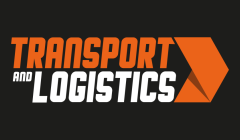Society of Motor Manufacturers and Traders data has shown that true fleet sales were down by 7.2% in 2018, slightly ahead of the 6.8% overall decline in the new car market. A total of 802,813 new car registrations were recorded as fleet sales – excluding rental, Motability and captive – representing around a third of the 2.36 million cars registered in the year.
Despite this news, the UK still remained the second largest market for company cars in Europe. Mercedes-Benz, the 2018 Fleet News Awards’ Fleet Manufacturer of the Year, achieved the highest true fleet sales last year – despite a 4.1% decline – with more than 83,000 cars sold to fleets.
An all-new version has replaced its best-selling fleet model, the A-Class, last year. An RDE2-compliant diesel engine was introduced by the manufacturer to the range, which avoids the 4% benefit-in-kind (BIK) surcharge. The C-Class also received a facelift in 2018, adding mild-hybrid technology for the first time.
Second place in the true fleet rankings went to Volkswagen, having recovered from a challenging September. Its fleet sales dropped 72% in the month that WLTP was introduced, as the manufacturer was unable to get all its models type-approved ahead of the September 1 deadline. By the end of the year the German brand had amassed 78,000 true fleet registrations and the Golf racked up the highest true fleet sales for a single model.
Only a handful of manufacturers managed to increase their true fleet sales year-on-year. One of the highest achievers was VW Group brand Seat, with a 23% uplift. In terms of volume, the VW Group brand still achieved fourth place in the overall true fleet rankings, but was 12,000 registrations behind BMW.
For BMW, it was mixed results. While true fleet sales were down by 7%, figures from Dataforce put the new 5 Series as true fleet ‘segment leader’ – outselling the 1 Series by two to one. An all-new 3 Series joins the brand’s model range this year, alongside its recently revised SUV range, giving it a strong opportunity to regain those lost sales.
Audi suffered a decline of 10,000 true fleet registrations last year. Like Volkswagen, a big reason for this was lack of availability. Its core fleet models A3, A4 and A5 remained largely unavailable between September and December due to WLTP.
The highest-placed non-German brand was Vauxhall, followed by Ford. The two volume carmakers are pushed down the table as premium brands increase their foothold in both the SUV and smaller car segments. There is also pressure from Asian brands. Kia and Honda both increased true fleet sales by more than 10%, and are joined by Toyota and Nissan to complete the top 10.
The only premium brand to increase its true fleet business in 2018 was Volvo. With its all-new range of saloons and SUVs, the Swedish firm has grown its true fleet business by more than 10%. Mitsubishi also enjoyed a true fleet sales boost thanks to the introduction of its new Outlander PHEV. It was the UK’s best-selling plug-in vehicle in 2018 with a total of 8,701 vehicles registered.




